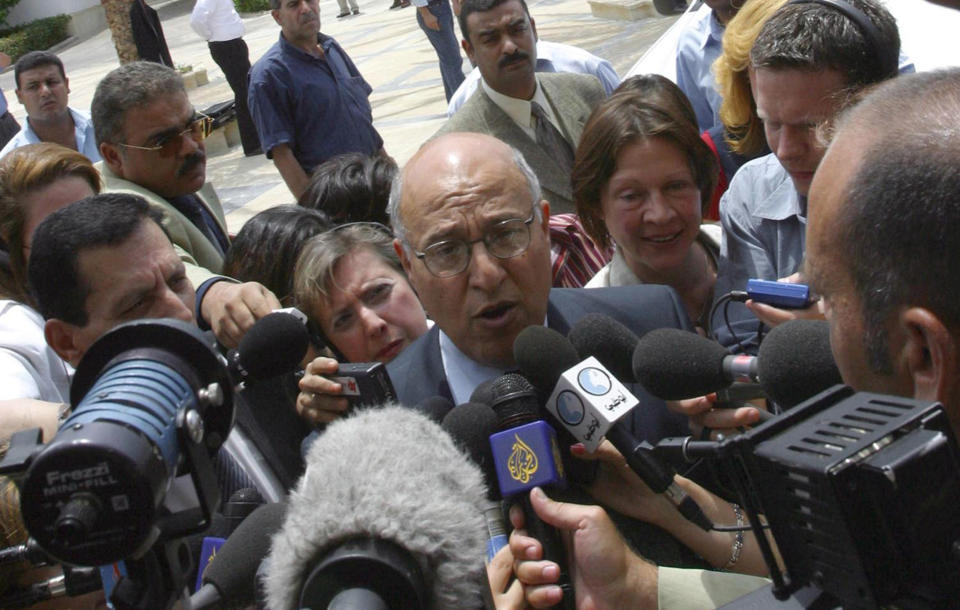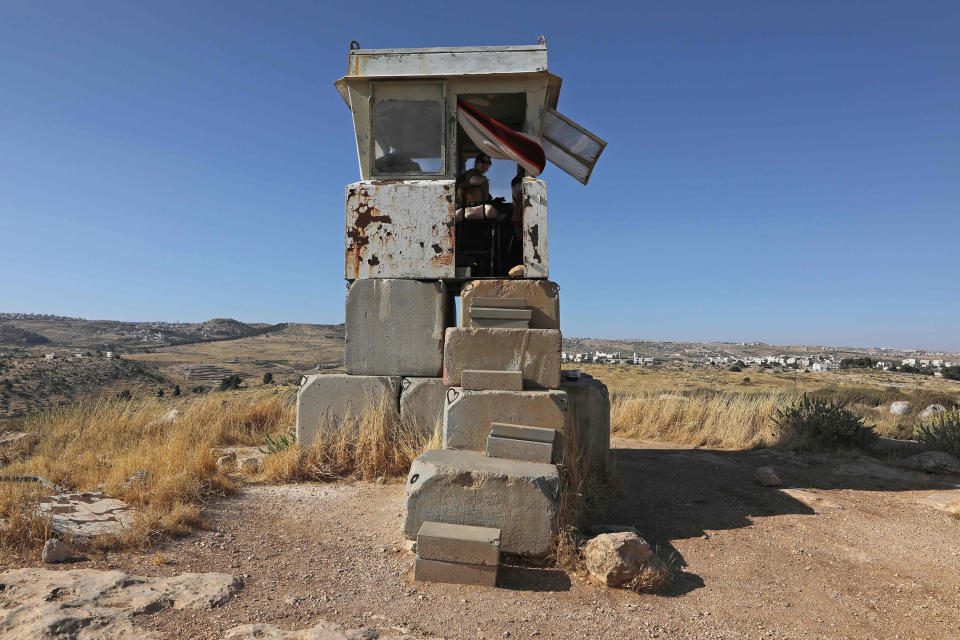As Israel's annexation looms, two men see peace — and their life's work — slip away
Almost 27 years ago, two officials — a Palestinian and an Israeli — thought their respective sides had found a path to peace. Now, as Israel debates plans to annex land the Palestinians envisage for a future state, their hopes for a shared future, with two states co-existing side by side, seem to be slipping further away.
Nabil Shaath clearly remembers the day the Oslo Accord was sealed with a handshake on the White House lawn in 1993, raising hopes that Palestinians would soon have a state alongside Israel.
"I felt that it was absolutely possible that within 20, 25 years there would be a totally different Middle East with prosperity and peace and stability," said Shaath, who is Palestinian President Mahmoud Abbas' adviser on foreign affairs and international relations.
"But what do I predict today? Chaos," said Shaath, who helped lead Palestinian efforts to implement the 1993 accord in further peace negotiations with Israel.

Israeli Prime Minister Benjamin Netanyahu has said Cabinet discussions would begin as early as July 1 on his plan to extend Israeli sovereignty to territory in the West Bank that Palestinians seek for a future state. Annexation was one of his major campaign pledges to right-wing voters before the election in March.
The exact land Netanyahu plans to annex remains unclear, but he has indicated that it will fit within the Trump administration's plan for peace in the region, which was announced in January. The United States' so-called deal of the century would allow Israel to annex about a third of the West Bank, including major settlement blocs, as well as the strategic and fertile Jordan Valley, the region's breadbasket, on the border with Jordan.
Download the NBC News app for breaking news and alerts
However, the Palestinians, who were not involved in developing the Trump plan, have rejected it and annexation, which would leave them with scattered territorial enclaves. The proposal would also impose conditions for statehood, including law enforcement control, free and fair elections and demilitarization.
The other official, the Israeli, is Yossi Beilin, who as Israel's deputy minister of foreign affairs was one of the chief architects of the historic 1993 Oslo peace process with the Palestinians. He has also warned against unilateral annexation, saying it could lead to a de facto one-state scenario rather than two independent states.

In that situation, it would become difficult to deny Palestinians Israeli citizenship without Israel's being accused of creating an apartheid state and jeopardizing the Jewish majority in Israel.
"The world will move from the support of the two-state solution to one-person, one-vote," Beilin said. "If on the 1st of July there is annexation, the threat against the Jewish state is huge."
By contrast, Shaath said the Palestinians would accept a democratic, secular state for Jews, Christians and Muslims.
Annexation would violate international law, peace agreements and the Oslo Accord, said Shaath, who negotiated with Beilin, directly and indirectly, for years.
"It will make what remains of Palestine totally incapable of developing an economy and developing a unified society, building the institution of the state," he said.
Over the years the pair became good friends, and Beilin even attended Shaath's wedding.
Together, they have watched as the prospect of peace has slowly faded.

Beilin, however, is optimistic that even if the government proceeds with annexing parts of the West Bank, it will not permanently spell the end of a two-state solution, because Israelis will ultimately reject a one-state solution.
What's more, he added, while it would be difficult, it is not impossible for lawmakers to reverse a decision to extend Israeli sovereignty over land in the West Bank if 80 out of 120 agree in Israel's parliament, the Knesset.
Israel captured the West Bank, a kidney-shaped territory dotted with olive trees, stone walls and biblical towns, from Jordan in the 1967 Arab-Israeli war.
Since then, the construction of Israeli settlements has ballooned, and the territory is now home to more than 425,000 Israelis, as well as almost 2.7 million Palestinians, according to figures collated by Peace Now, an Israeli organization that advocates for a two-state solution.
The settlements, which range from small outposts to cities with tens of thousands of people, are considered illegal by most of the international community. However, last year the U.S. reversed its decadeslong position that they violated international law.

The extension of Israeli sovereignty to those settlements, however, is a final step toward Israel's being able to keep the land.
Last week, Palestinian Prime Minister Mohammad Shtayyeh warned that if Israel proceeds with annexation, the Palestinian Authority will declare a Palestinian state based on the armistice lines before the 1967 war, with East Jerusalem as its capital, according to the Palestinian newspaper Al Quds.
It remains unclear whether the U.S. will greenlight the annexation if there is no sign of Israeli negotiations with the Palestinians. Israel's agreeing to negotiations was one of the conditions for the U.S. to recognize Israeli sovereignty over parts of the West Bank, a senior administration official told NBC News this year.
Netanyahu has faced increasing international pressure to call off the annexation, including urgings from the European Union, the Arab League and Norway, which helped broker the 1993 and 1995 Oslo accords. The king of Jordan, which Israel has a peace agreement with, has warned Israel of a "massive conflict" if it proceeds.
Shaath hopes the outcry and warnings of the international community will persuade Israel not to proceed — the hope being, he said, that if the Palestinians can survive five or 10 more years of the status quo, leadership in the U.S. and Israel will have changed and the prospects of a peaceful settlement will have been revived.
"The period 1994 to 1999, this was paradise," he said wistfully. "There was a real possibility of peace then. Today, I don't see it."
